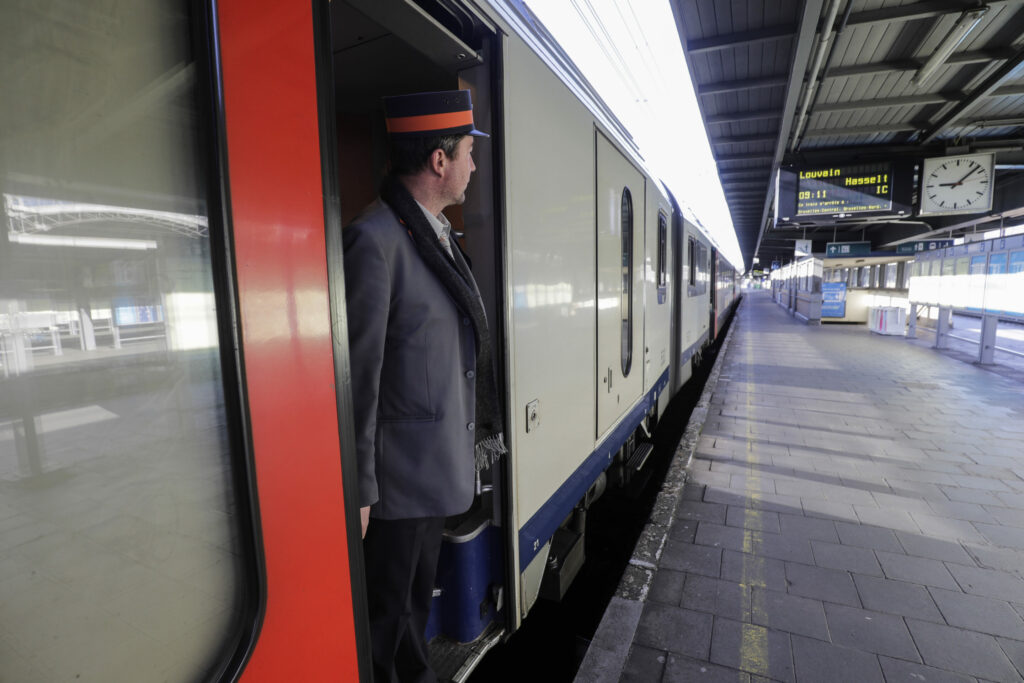Employees working for national railway operator SNCB are increasingly falling victim to aggression causing human suffering and delays for passengers. SNCB's efforts to tackle the problem, however, have been rejected.
A total of 2,298 cases of violence and aggression against railway staff were recorded last year, figures from Mobility Minister Georges Gilkinet (Ecolo) requested by N-VA MP Tomas Roggeman showed. This equates to six employees facing aggression every day and is an increase from the almost 2,000 recorded last year.
"This is a new sad record and highlights that it is high time to intervene," Roggeman noted. He said that, while this figure is already extremely worrying, the figure is likely even higher in reality as not every act of physical or verbal aggression is reported by staff members.
Almost 1,400 cases involved threats or insults while 925 cases involved effective physical aggression, such as assaults and being beaten up. Train attendants, who check passengers' valid tickets, are most likely to become victims.
Heavy measures rejected
Aside from the impact this abuse has on the mental and physical health of employees, these cases of aggression also cause train delays. For example, if staff members are attacked, the train cannot depart before a colleague replaces them.
The acts of aggression also resulted in 348 staff members having to take time off work, accounting for a total of 57,000 working hours. SNCB is therefore keen to tackle the problem and ensure the figure doesn't rise further.
SNCB's CEO Sophie Dutordoir recently said during a parliament hearing that she was shocked by the increasing number of cases of aggression suffered by her staff. She asked the government to allow Securail security officers – who also face increasing levels of violence – to be equipped with bodycams.
Dutordoir argued that filming aggressive people would make them calm down faster and that the images would help to effectively convict them. Roggeman also supported this measure, however, it seems unlikely this measure will enter into force soon as the Data Protection Authority, among others, has serious objections.
Related News
- Belgium takes steps to prevent torture in prisons, detention centres and police stations
- Bouchez was 'off the mark': Brussels will not deploy army to deal with drug violence
Roggeman argued that this is the final straw. "Time and again, we call on action to be taken by the competent ministers, but no progress is made. On the contrary: SNCB staff have to leave for work day after day knowing that they could be next," he told Belga News Agency.
He added that a resolution by N-VA to increase safety in rail transport, including by ensuring more efficient communication between Securail and the Railway Police and for extra security guards on trains and in stations, was voted down by the federal majority parties, who wanted to wait and see how the figures evolve.

